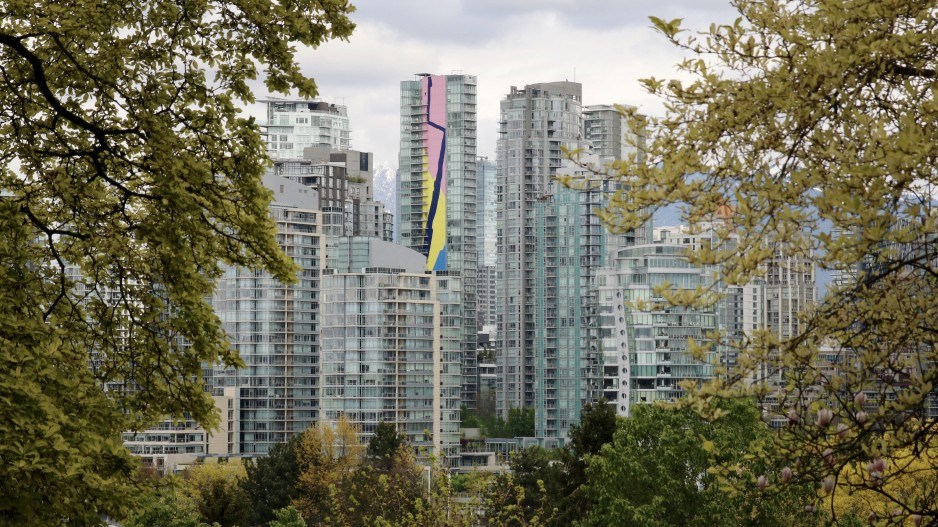Taxing wealthy property owners, who declare little income, and funnelling more public funds and land into subsidized home construction may take the sting out of persistent speculative housing investment in B.C., according to some familiar experts in this province.
“We have a really screwed-up system that encourages people to buy homes and discourages working; and it’s working,” Tom Davidoff, associate professor at the UBC Centre for Urban Economics and Real Estate, told participants at a Union of BC Municipalities housing conference April 6.
“We need to redistribute income and we need to build more homes,” said Davidoff, assessing the current state of housing affordability in B.C.
Davidoff resurfaced his 2022 study in the Canadian Tax Journal that asserts wealthy residential property owners, especially in Greater Vancouver, are more likely than not to be getting a discount in providing for their fair share of social benefits (assuming one agrees with a progressive tax system).
“The richest people in B.C. don’t pay enough taxes. How do you measure how rich they are? You count the number of their windows,” said Davidoff.
Davidoff’s study shows property owners with a median home value of $3.7 million, paid just $15,800 of income tax, on average — or 0.42 per cent of their home’s value — whereas owners with a median home value of about $1 million paid $12,500 in income tax, or 1.37 per cent of their home’s value.
Davidoff and colleagues have hence proposed a one per cent property surtax on the priciest top five per cent of properties. Income taxes paid would offset the surtax, with several exceptions, such as seniors on pensions.
The surtax essentially targets those who import cash from outside Canada to buy property, while taking more from social infrastructure and benefits than they contribute, despite their wealth.
“Extract cash for people who work in your community,” argued Davidoff.
Joshua Gordon, a Statistics Canada researcher formerly an associate professor with Simon Fraser University (SFU), has previously noted (during his tenure at SFU) there is zero correlation between median property value and median owner income, among Greater Vancouver single-detached properties. Conversely, Gordon has found a high correlation between higher home values and buyers identified as non-residents.
Gordon presented the latest statistics on property investment, at the conference.
The share of properties with non-resident owner participation has remained largely unchanged between 2018 and 2020, noted Gordon. In Vancouver, the rate is 6.2 per cent and outside of major cities it’s 4.5 per cent.
The proportion of homes in B.C. used as an investment is 16.5 per cent, including 9.8 per cent from in-province investors. For condominiums, the figure jumps up to about 36 per cent, with investors accounting for nearly 50 per cent of new condos, specifically (built between 2016 and 2020).
Statistics show B.C. has been building more housing units over the last five years (2017 to 2022), compared to the two decades preceding, with new completions between 35,000 and 40,000 annually. This includes an approximate doubling of rental construction.
Jill Atkey, CEO of the BC Non-Profit Housing Association, said building sufficient rental supply will moderate rental prices, but given the deficit, “we’re at least a generation from doing that …despite the fact we’ve been building more rental than we have in 30 to 40 years.”
Atkey says there’s a “healthy role” for investors in the housing market but what’s needed to complement it, is senior government funding for the likes of co-ops and non-profit housing complexes.
“For me, the bigger question is not necessarily that investors have contributed to disfunction in the housing market, they’ve just been …capitalizing on what the market has allowed them to do,” said Atkey, noting about one in five new homes built 40 years ago was under a non-profit arrangement.
Atkey said the recently announced BC Builds $500-million fund for non-profits will be able to move about 2,000 existing rental units into non-profit and co-op arrangements.
“It’s not a silver bullet but a factor than can help,” she added.
Atkey suggested government tax incentives for non-profit property purchases, such as waiving capital gains taxes for the sellers.
Any Yan, director of the City Program at SFU, said the market is asking too much of private property ownership and rental demand is growing faster than it can provide for.
Yan said there’s a gap between “what the market wants and what people need,” noting units sized appropriately for families may be falling by the wayside; case in point, Gordon’s statistics show condominiums are becoming smaller with each passing year (810 square feet in 1990 to 760 square feet in 2020).
Yan suggested at least some of the property transfer taxes the provincial government collects be redistributed to municipalities for subsidized housing construction.
“We have the values of San Francisco on the incomes of Kansas City,” said Yan.




